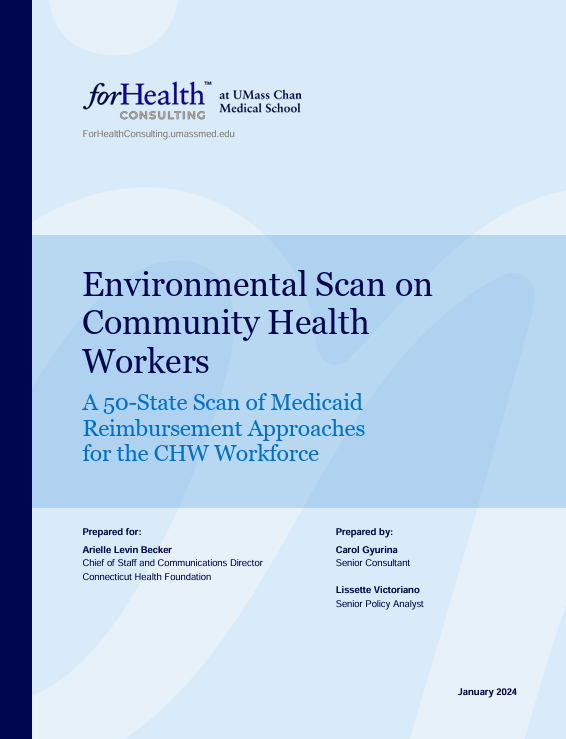Headline
Comprehensive scan reveals diverse strategies in program design and provider reimbursement for community health worker (CHW) services within state Medicaid programs.
Background
State Medicaid programs offer a significant opportunity to sustainably fund CHW initiatives. This report provides an in-depth analysis of state strategies for CHW services reimbursement through Medicaid.
Findings
As of January 2024, 24 states reimburse for CHW services through Medicaid and three additional states have pending reimbursement policies following recent authorization. For each state, the report provides details on services, including scopes of service and member eligibility, and reimbursement, including payment method and rates. A companion spreadsheet allows users to filter and sort the state data by CHW program approach and payment methodology.
Overall, 16 states use state plan amendments, while five use 1115 demonstration waivers. Most states offer CHW services to all Medicaid members, though some target specific populations, like beneficiaries with behavioral health needs. Common reimbursable services include care coordination, systems navigation, health coaching, and community outreach.
Policy/Program Takeaways
Despite the significant variety of CHW program design and reimbursement approaches, common elements across states include standardized service definitions, certification requirements, and established billing codes. State Medicaid agencies, Medicaid health plans, and other interested stakeholders can use this report to inform the development of sustainable funding models for CHW services through Medicaid.

